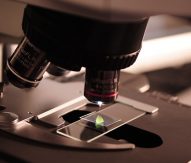
EU-China food safety project awarded €10m
The European Union’s H2020 programme and the Chinese Ministry of Science have been awarded €10m towards an EU-China partnership to improve food safety and fraud.
The Institute for Global Food Security at Queen’s University Belfast, Northern Ireland, will lead one of the world’s largest food safety projects, implemented in Europe and China.
The EU-China-Safe project will incorporate key players in the food industry, research organisations and governments across two of the world’s largest trading areas.
Professor Yongning Wu, chief scientist from the China National Center for Food Safety Risk Assessment and co-ordinator of Chinese efforts within the project, said: “The EU-China-Safe partnerships between two trading regions is of immense importance to help deliver safe and genuine food to all citizens.”
Food fraud manifests in various ways. In Europe in 2013, for example, horse meat was labelled and sold as beef; in 2014, illicit Chinese oil saw slaughterhouse waste and sewage used in cooking oil.
Reported cases of food fraud are increasing in occurrence on a global scale and is worth an estimated €46bn globally per year. An increasingly complex global food supply network increases the risks of serious foodborne illnesses.
EU-China-Safe aims to reduce food fraud and improve food safety through focusing on improving food legislation, food inspection and increasing access to information across both continents.
Pro-vice chancellor at Queen’s University and project co-ordinator Professor Chris Elliot added: “There is a pressing need to act internationally in response to emerging threats to food safety and fraud.
“Working as a coalition of 33 partners to share knowledge and maximise technologies will empower the food industry to provide safer, authentic food and will boost consumers’ confidence and facilitate the expansion of EU-China trade.”
The partnership involves 33 partners, including 15 in the EU and 18 in China.




